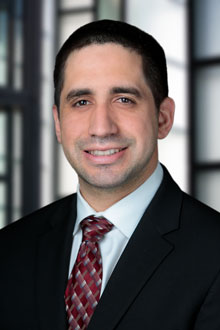In Mikhaeilpoor v. BMW of North America, LLC (Apr. 1, 2020, B293987)__Cal.App.5th__, Division One of the Second Appellate District Court of Appeal (Los Angeles) determined whether a plaintiff who prevailed in a Song-Beverly Act litigation sought overinflated attorney fees. The jury awarded the plaintiff $71,610.16 in damages relating to her Song-Beverly claim. (Slip Opn., p. 3.) Following the jury verdict, the plaintiff filed a motion for attorney fees seeking $344,639. (Ibid.) The defendants opposed the motion arguing the fees asked for by the plaintiff should be reduced by at least $83,206.05. (Id. at p. 4.) The trial court was aghast by the $343,000 amount demanded by the plaintiff because the trial court believed the case was “a very simple case [with a] straightforward trial.” (Ibid.) After analyzing the requests, the trial court ruled the plaintiff’s fee request to be unreasonable and reduced the attorney fees awarded to the plaintiff to $95,900. (Id. at p. 5.) The plaintiff appealed. (Ibid.) The Court of Appeal affirmed the trial court’s ruling. (Id. at p. 21.) A copy of the opinion is attached.
On appeal, the plaintiff first argued the trial court did not use the Lodestar method to reduce the fees. (Slip Opn., p. 8.) The trial court began by reiterating a trial court’s decision to reduce attorney fees is reviewed for abuse of discretion. (Id. at p. 5.) When viewing the trial court’s decision through in the light most favorable to the trial judge, it was apparent the trial court did not make percentage reductions in violation of the Lodestar method. (Id. at p. 8.) Instead, the trial court gave specific reasons for the reductions it made to the fee amount. (Id. at pp. 10-11.) The plaintiff’s attorneys double-billed and spent an excessive amount of time on simple tasks. (Ibid.) Further, the trial court did not have to give a specific reason for each deduction it made. (Id. at p. 12.) “A reduced award might be fully justified by a general observation that an attorney over[-]litigated a case.” (Ibid. citing Gorman v. Tassajara Development Corp. (2009) 178 Cal.App.4th 44, 101.)
The plaintiff also contended the trial court inappropriately tied the fee reduction to the plaintiff’s modest amount of recovered damages. (Slip Opn. p. 12.) The appellate court observed the trial court specifically mentioned the fees were overinflated “irrespective of the damages awarded.” (Id. at p. 14.) The trial court did not conduct a proportionality analyses. (Id. at p. 15.) When weighed against the trial court’s clear expression of its reasons for reducing the fee amount, the trial court judge’s stray remark comparing the requested fee amount to the damages received did not show an abuse of discretion. (Id. at p. 16.)
Also, according to the plaintiff, the trial court should not have reduced the fees beyond the $83,206.05 amount the defendant requested. (Slip Opn., p. 16.) However, the defendant asked the court to reduce the fees by at least $93,206.05. (Id. at p. 17.) The defendant did not limit the demand for reduction to that amount. Notwithstanding the requested reduction value, California law gives trial courts unilateral discretion to reduce attorney fee amounts in any way they choose. (Ibid.) Finally, the trial court’s decision to deny the fee multiplier was correct because the case was simple, and the attorneys spent an inordinate amount of time litigating it. (Id. at pp. 17-18.)
This is a helpful case to cite against those over-zealous attorneys who try to “milk” an attorney fees claim beyond reason.
